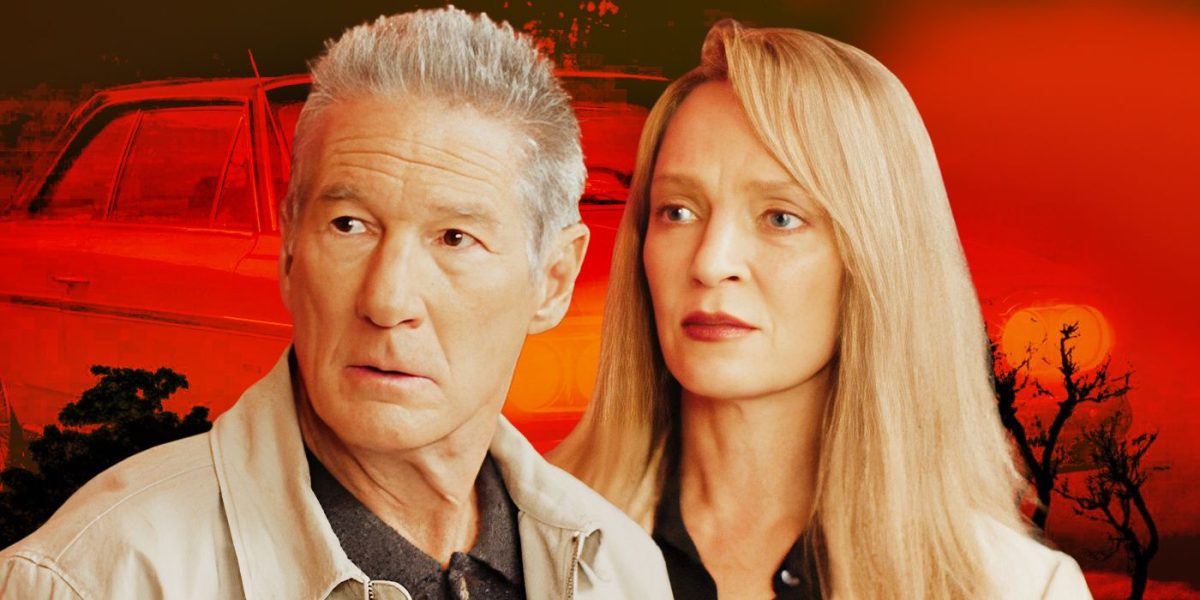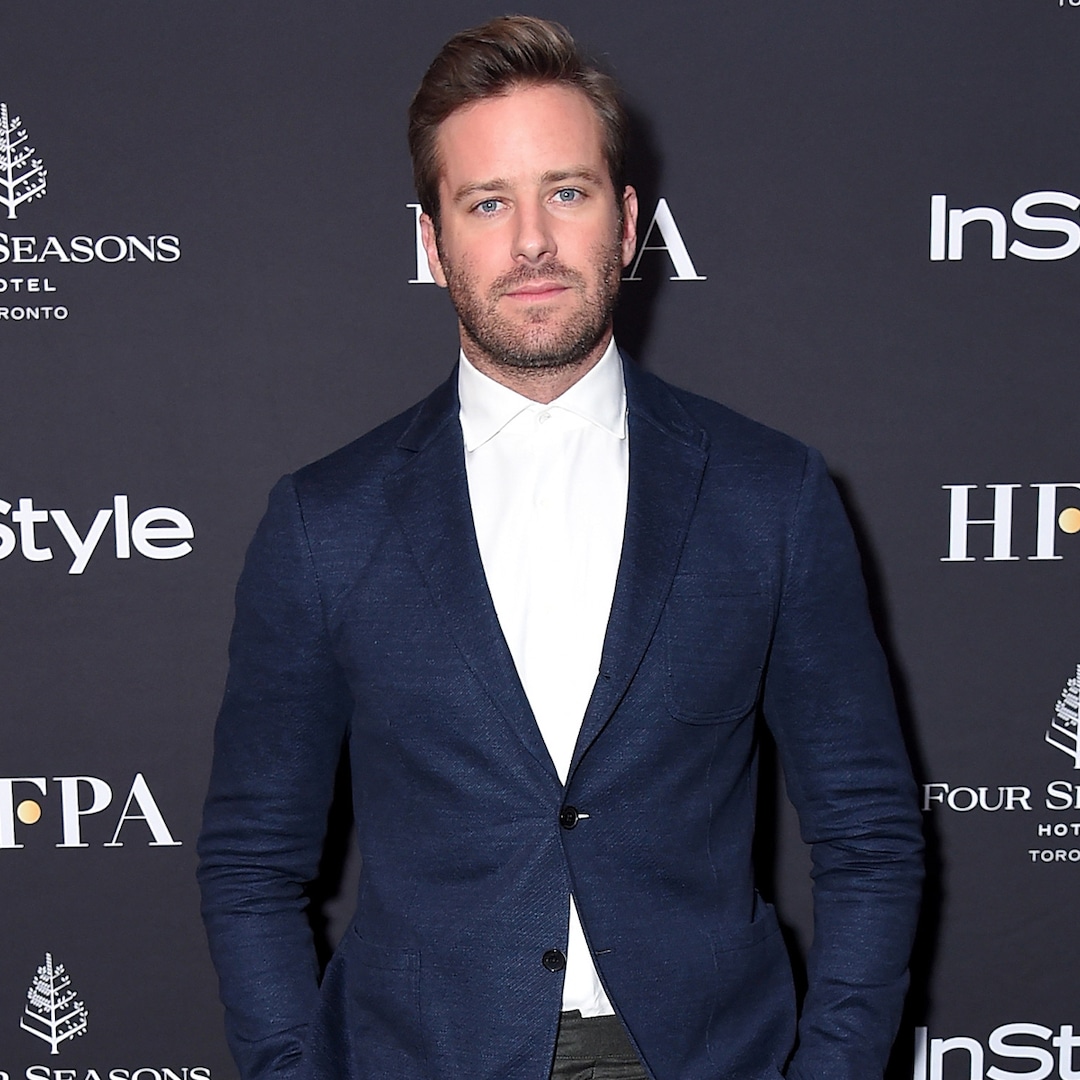
Richard Gere and Uma Thurman Get Existential at Cannes Film Festival
May 24, 2024
The Big Picture
Life reflections and lingering questions about death weave through the complex narrative of Oh, Canada.
Richard Gere and Uma Thurman discuss personal legacies and life reflections, emphasizing the importance of family and personal connections.
Paul Schrader’s precise scriptwriting process and focus on imagination set the tone for the deep, reflective themes explored in Oh, Canada.
Paul Schrader’s new film, Oh, Canada, world premiered at Cannes Film Festival 2024 to an extended standing ovation. Based on the novel, Foregone by Russell Banks, the movie stars Richard Gere, Uma Thurman, and Euphoria’s Jacob Elordi, and after the screening, it left its crowd with lingering questions surrounding the main character’s relationship with death.
Oh, Canada is a puzzle of a man’s life, presented in scattered pieces as the ailing documentarian, Leonard Fife (Gere), tells his story to a former student, filmmaker Malcolm (Michael Imperioli). Told in the present-day interview, with his wife Emma (Thurman) by his side, and through flashbacks that feature Elordi as a young Fife, we learn about past transgressions, regrets, and more in a sort of public confessional as he grapples with his nearing, inevitable end.
While at the festival, Collider’s Steve Weintraub joined a roundtable discussion to talk with Gere and Thurman about their experience working with Schrader. For Gere, it was a reunion over 40 years in the making, and Gere discusses Schrader’s process when writing and how the part was always meant for him. Due to the nature of the film, the two Hollywood stars talk candidly about their families and their jobs, the legacies they’ll leave behind when they’re no longer here, and mentors all along their journeys. For all of this and more, check out the full interview below.
Oh, Canada (2024) Leonard Fife, one of sixty thousand draft evaders and deserters who fled to Canada to avoid serving in Vietnam, shares all his secrets to de-mythologize his mythologized life.Director Paul Schrader Main Genre Drama Writers Paul Schrader Studio(s) Arclight Films , Vested Interest , Lefthome , Exemplary Films , Carte Blanche , One Two Twenty Entertainment , Sipur Studios , Foregone Film PSC
Richard Gere Reunites With Paul Schrader After 40 Years
The two worked together on ‘American Gigolo.’
Image Via Paramount Pictures
Was there a different dynamic now compared to 40 years ago when working with Paul?
RICHARD GERE: Well, I’ve made 40 movies in the meantime, and he’s made, I don’t know how many. So, yeah, I’m sure. He and I are both a little more crusty, is what I’d say. We’re just clearer about what we do and how we want things to be. Paul and I spoke a lot in the very early stages before the movie was even financed about what the movie was and what we were trying to do, and where he was coming from so I would be on the same wavelength with him. Once we did that, everything flowed. The only thing we kind of labored about was the de-aging makeup and what level to do with that. So, we worked on that for a couple of months before we started shooting.
That was the point of discussion you had, the makeup in the film?
GERE: Yeah, the look. What was the look gonna be? Because it was all going to be a close-up, basically. We shot that very quickly, actually. A couple of days we shot almost all of this stuff, the interview stuff, and so we wanted that look to be right and powerful. Not too much, not too little, but find what worked.
Did his approach to directing in general change at all? It’s a more talkative film than we’re used to.
GERE: Well, Paul’s not a talker. That’s not his thing when he’s directing. It’s not, like, trying a lot of things. I don’t know, you probably had the same experience. I said, “Do you want to try something else?” He said, “No, that’s good.” I said, “Okay. Do you wanna do one?” He would say, “Yeah, let’s try some other things.” But it was a very short schedule and he’s very precise of how he wrote the script to make it fit that kind of a schedule. I mean, the movie looks like it’s much larger than the budget would indicate or the number of days we shot.
How many days did you shoot?
GERE: Like, 17 days. It was under 20 days.
‘Oh, Canada’s Richard Gere and Uma Thurman Discuss Their Legacies
I wanted to turn the conversation towards the themes of the film, which are obviously about taking leave and looking behind. Now, if you look at your own lives, it’s almost a historical question. What matters more to you, what you left behind as artists, the work, or is it more of who is part of your personal life, your family?
UMA THURMAN: Oh, well, of course, absolutely it’s my family. I think it’s touching in the film, as well, that as much as it’s about a great artist and so on, his end-of-life reflections are all on his most intimate moments and most intimate decisions.
Is that something you subscribe to completely as well, or do you have a different take on that?
GERE: This is a wonderful job we have, as you guys. I’m sure you don’t have to actually go to work. You can do this. And I think we all value that and understand that. But of course, you don’t take any of this with you. On my deathbed, I’m not gonna be thinking about movies, that’s for sure. I’m gonna be concerned with my wife and my kids and my friends and the people I’ve touched and my teachers. This is an incredible job here. I would never diminish its importance in my life and what it has allowed me to do, but I don’t reify it. I don’t put it into a kind of a deified realm.
On the other hand, this film reminds of that thing when you are not here anymore — transcendence. This is very tricky because you are in the public eye, but you are also a person. How do you want to be remembered?
THURMAN: I don’t even know. I think the choices you make and how you live your life. You try to do as much good as you can, try to take as much responsibility as you can, to love as profoundly as you can. Hopefully, somehow there will be a reflection of that love left behind you.
And a figurine from Kill Bill.
THURMAN: The figurine in a landfill, probably. [Laughs]
You mentioned teachers, and I wanted to know if you remember any mentor in your life who was so influential and so part of who you are now.
GERE: So many. I mean, it’s hard to isolate those things. But without being specific, certainly, when I think that, I think of my father, who’s, to me, very embedded in this movie. I was watching this with my son, who knew my father and his grandfather very well, and he saw a lot of my father in the movie. He knew that I was pulling a lot of him and channeling him and bringing him into this film. But my father was not a man of words, he was a man of feeling. He grew up on a farm, milking cows, and he was very bright, but that’s not what his expression in the world and his meaning was. He was a genuinely gregarious man. He loved people, and he loved animals. I’m not quite that way. [Laughs] I’ve had to work a little bit to make that happen and start to bring that out and foster it in my own life. But I think that’s the truth of his being, not something he said but his being, I’m realizing how profound it was to who I am today.
THURMAN: Oh, so many. So many. My family very, very much. But I didn’t have a particular teacher or a mentor. I would have liked to have had more. I do think that more mentorship is a positive, and I wish I had more.
You’ve both done such great work throughout your career. It’s gonna be young people who’ve never seen anything you’ve done before, but if someone has never seen anything you’ve done, what is the first thing you’d like them watching and why?
GERE: Oh, I don’t care, to tell you the truth. [Laughs] My son, when he was a young kid I realized I couldn’t show him a lot of my movies — they were just too adult — but there was a movie, First Knight, that I had made. I was Lancelot. That was okay for him to see. There were enough horses and action and nice people, and pageantry. That was okay.
THURMAN: Mine was The Producers, where I sing and dance like my favorite hero, Ginger Rogers. [Laughs]
Your daughter already has embarked on a very successful career. I think your son is starting an acting career. With what kind of feelings do you witness these developments that the acting gene is traveling on?
THURMAN: I feel awe and pride. I didn’t really want it for her because it’s harder — no one ever believes it’s a hard life from the outside, and you can’t convince them, so then that’s fine. But then, when I saw that she was spectacularly good, I felt sort of a peace with it that she’d made the choice because she’s so good. She will bring a lot of light and life to the world of performance.
GERE: I mean, he’s so young. He’s just starting. He’s just graduating from college, so, I mean, who knows if he’ll take this seriously or not? He’s figuring out his life. I wouldn’t lumber him with this, but he enjoys it, the films that he’s made in college, and the things that he’s done. He understands the feeling. He calls it “in flow.” When he’s acting, he feels in flow. He’s just connected to his best self, so it’s a wonderful thing.
Obviously, you don’t want to hold him back and tell him to become an accountant, to do something reasonable.
GERE: No, I would be just as happy if he was terrible at acting, and I could say, “Honey, forget it.” But he’s actually very good.
Richard Gere Explains His Relationship in ‘Oh, Canada’
What were your first thoughts about this character? At the end of the film, we discover the main character basically tried to avoid commitment. He tried to stay away from important things.
GERE: That’s an interesting thing you say because he’s committed. This marriage is a commitment, but they found each other, and it works. She said it’s a good marriage, but I think she believes it.
THURMAN: Absolutely.
GERE: It’s not perfect in the way of other people’s ideas of perfection. It may not fit, but it fits for these people. They’re movie people. It’s a kind of peculiar thing where they didn’t have kids together. They didn’t seem to need that. And whatever the mysterious impulses of my wife would be in this, they have a life that works for them. So within that, I don’t think there’s any regret at all.
The movie is about aging, and for your profession, the industry can be very cruel to aging.
GERE: What are you trying to say, sir?
[Laughs] That’s my question.
THURMAN: The press can be cruel towards aging. [Laughs]
Do you feel it’s changing? Because for women, it seems to be changing, and for Black people, but for people who are getting old, how do you see it?
THURMAN: The world is ageist in general. Not ageist enough, though, if you look at our representatives. It’s nothing personal. It’s completely egalitarian, the cruelty of aging. So, no one is immune. It’s like what Richard said earlier in the press conference: everyone is going to die. This is not some isolated punishment. It’s something everyone experiences. We share it.
Paul Schrader Wrote ‘Oh, Canada’ With Richard Gere In Mind
I once spoke with Will about Paul Schrader and was told the main work he does is when he writes the script. He’s not the director who gives you many indications.
GERE: Absolutely.
Can you both comment on that aspect of Paul’s way of work?
GERE: That’s what I was saying initially. He writes his script very specifically, and what William said is true. That’s when he imagines the movie. He casts by his imagination. In this case, he and I knew each other well, so he said, “Okay, that fits with what I have in mind. I also know Gere’s instincts of probably what he’s gonna do so that all is taken care of.” But it is this imaginative process of sitting down at his desk with a computer or a paper, however he does it, and imagining this movie. That’s the primary work that he does. And he was talking today about writing on spec. This is a big thing in America, is writing on spec. A painter will be like, “I’m gonna make a painting, and I don’t know who’s gonna buy it.” But he’s gonna spend months and months writing a script, and that’s his movie. It doesn’t need a lot of talking, and that doesn’t need a lot of play. There wasn’t particularly a sense of play in our shooting of this movie. It was fulfilling the scripts.
There’s a pain that your character feels and the fear of death you can feel in his eyes, it’s very vivid.
GERE: I don’t know that he has a fear of death. I don’t think he’s happy about the pain that he’s feeling. I witnessed this with my father. My father wasn’t afraid of death. If anything, he was afraid of being irrelevant as he grew older. He was retired, and then what would he do? He worked with Meals on Wheels and he was delivering food to people, and then he worked with the education department of the local schools in the town where he lived. He did these things, but it was a constant. And especially when COVID came, and his interaction with people was taken away from him, and a sense of irrelevance. “What’s the bother? There’s no meaning anymore.” The fear is lacking meaning. I think it’s the same with this guy. He’s acquiesced to this is his last statement, and he’s got these intellectual ideas that Paul embraces that only exist when the camera’s off. It was a very French idea, also, this idea. But he wants his wife here to be part of this process, and it won’t work unless she’s there. So she’s a living, breathing part of himself. The camera’s the intellectual side of himself, so it’s necessary that those two things are functioning in the movie. And he’s very aware that he’s gonna die soon.
As an actor, I can imagine that thinking of your father to remind you to be relevant in life is a big deal, that it’s behind you every day, is it not?
GERE: I don’t worry about that, I just make myself relevant. And we don’t have to do it in big ways. It could be a simple thought.
What about you?
THURMAN: Well, I didn’t have this experience with my father as Richard did, so I don’t yet feel the kinship of that life experience.
Related From ‘Kill Bill’ to ‘Les Misérables’: Best Uma Thurman Performances The highlights of the actress’ outstanding career to date.
But being relevant?
THURMAN: Relevant? Culturally relevant?
I mean, to not become invisible. To remain relevant in life.
THURMAN: I think maybe we’re thinking of the words differently.
GERE: I think you’re right.
THURMAN: I’m trying to understand what I would probably call it. It’s being present, right? Being present and very alive in the moment and in the work of being an actor. It’s being very alive in your performance in a way that you actually don’t predict what it is to feel. You experience. You know the script, you have the story, and then you start to experience your character. I’m often very surprised by the experiences of the character.
To what extent have the two of you, as very spiritual human beings, made peace with the fact that you will have to say goodbye to others by leaving yourself or others leaving you? How are you coping with this, perhaps the biggest challenge of our lives?
GERE: Well, all you’re leaving is the body and this reality structure. Consciousness continues. I don’t doubt that from any fiber of my body and mind. We leave this — this was a hotel room. All of this was a hotel room. You check in, you check out.
But if I may ask, your wife is a little younger than you, so you will be the one who…
GERE: She is?
She is not? But seriously, obviously, you may be the first one to go.
GERE: No guarantees. As she keeps saying to me, there are no guarantees. The percentages would be in her favor, yes.
But you’ve made peace with that, obviously.
GERE: Go back to what I said. 100 years from now, none of us are here. 50 years from now, probably none of us are here. That’s a given, so why pretend otherwise?
Just follow up on that, was it an insight that you gained throughout the years, or was it already there when you were young?
GERE: Oh, I think you know that intellectually. I mean, if I would say that to anyone and we had that discussion, you’d go, “Yeah, of course.” But that’s different than internalizing it and actually having it be a driving factor in your life. The wisdom of realizing that, that takes everyday practice over and over and over again. Every second. Essentially, you’re reinforcing that idea that this is temporary. This right now is temporary. There’s no point that you can hold on to and grab on to and say, “This is real, and it’s going to last forever.” Nothing, physical or mental.”
But the reflection takes time.
GERE: That’s why you have the mental practice. You can call it meditation, you can call it thinking, you can call it reflecting, analyzing. You can call it whatever you want. But it’s continually doing the work to not be sucked into the hallucination that this is all real and eternal.
Is that, to an extent, the essence of acting?
GERE: The essence of acting? Somehow I’m trying to relate to that, and I don’t think so. I think acting is a mysterious process. I don’t even know what it is. I don’t know if you know what it is?
THURMAN: I like your son’s term. When it’s good, you’re in this kind of flow, this sort of channeled energy.
GERE: But that’s not conceptual.
THURMAN: There’s all this preparation you need to do to do something interesting with that flow, right?
GERE: But you don’t put your preparation on camera or on stage. You do the preparation so that the magic thing happens, which is completely non-conceptual. Like the basis of reality itself, it’s completely non-conceptual.
It is very interesting, at a certain point, your character says, “When you pray, you don’t lie.”
GERE: Yeah, I thought that was an interesting line too. There are some really good lines in this. I don’t remember if that was in the book or not, or if that was Paul’s line.
What do you think about that?
GERE: Well, I think we all, even if we don’t know it or believe it, we hope that there is a higher power. So, when you make a prayer, even when you’re faking it, you still behave as if there is a higher power.
THURMAN: I know there is one. [Laughs]
Check back with Collider for more from Cannes Film Festival 2024.
Publisher: Source link
Aubrey Plaza Issues Statement After Jeff Baena’s Death
The 40-year-old star and Jeff’s family issued a statement to People on Monday, where they called their loss an “unimaginable tragedy.”The Los Angeles County coroner’s office previously determined that Jeff died by suicide in his LA home. He was 47…
Jan 10, 2025
Jill Duggar’s Husband Clarifies Where He Stands With Jim Bob Duggar
Jessa Duggar (m. Ben Seewald)Jim Bob and Michelle's fifth child, Jessa Duggar, was born Nov. 4, 1992. Jessa met Ben through church and he began courting her in 2013—the old-fashioned approach to romance coming as a brand-new notion to a lot…
Jan 10, 2025
The Internet Has Officially Lost It Over Andrew Garfield's Slutty Glasses
That man knew exactly what he was doing with those glasses.View Entire Post › Disclaimer: This story is auto-aggregated by a computer program and has not been created or edited by filmibee.Publisher: Source link
Jan 9, 2025
Armie Hammer Lands First Movie Role Since Cannibalism Allegations
Armie Hammer Cameos As “Kannibal Ken” in Music Video 4 Years After Cannibalism ClaimsArmie Hammer is heading back to the big screen. More than one year after the Los Angeles Police Department ended their lengthy investigation into the Call Me…
Jan 9, 2025











